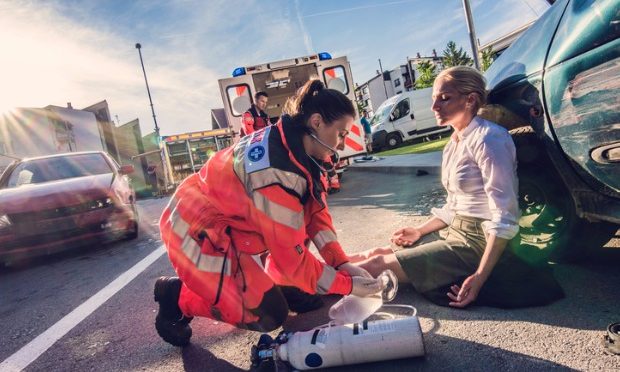Understanding accidental death and injury insurance

As South Africans are settling in to 2018, we can only hope to see a drop in the number of road accidents this year. During the December 2016/January 2017 holidays, 1 714 fatalities were recorded nationwide – that’s a 5% increase from the previous year.
“Accidents are by their very nature are unexpected,” says Sonja Visser, CEO of long-term insurance provider African Unity Life (AUL). “No matter how cautious we are, they are simply beyond our control. This is exactly why having accidental death and injury cover, or a personal accident policy, is very important.”
How does accidental death and injury cover differ from medical aid?
Accidental death and injury insurance is significantly different from medical aid in that it is paid as a result of an ‘event’ (accident); whereas medical aid covers all costs related to a medical or dental condition.
“Although accidental death and injury cover offers policyholders financial support, it is not meant to replace a medical aid,” says Visser.
“Rather, it is a standalone product to help accident victims or their loved ones deal with the costs associated with the incapacitation or death of the policyholder due to an accident. In cases in which the insured has been injured and is left temporarily or permanently disabled, cover is paid out according to a schedule for specific events or types of disability.”
Who should have accidental death and injury cover?
“That answer is simple,” says Visser. “Anyone who has a driving license or travels regularly – whether they are commuters or holidaymakers – should have this kind of insurance.”
Accidental death and injury cover should also be a critical consideration for anyone who supports a partner and children, as well as their parents. Visser suggests that this type of insurance can be added to a life policy as an added value benefit, making it very affordable and offering good value for money.
What is, and is not, covered under accidental death and injury insurance?
A personal accident policy provides invaluable cover if the insured is injured and admitted to hospital, or is left disabled and/or passes away as a result of an accident. Most insurance plans include Hospitalisation, Total Permanent Disablement cover, and Death cover.
Visser says that policyholders should familiarise themselves with events that this insurance does not cover; such as:
– Self-inflicted injury
– Injury due to mental disability
– Hospitalisation, disablement or death due to a hazardous pursuit
– Hospitalisation, disablement or death due to alcohol or drug abuse
– Non-accident-related hospitalisation
– Death and disablement due to an accident or injury that occurred before the policy commenced
– Suicide
She adds that many insurers also exclude certain high-risk sports and events, with only a few that provide cover for specific dangerous activities – at an extra cost.
“For example, the 2018 Dakar Rally takes place in South America from 6 January. That is one tough challenge, and the associated risks for competitors are high. One particularly risky class is the Malle Moto. In it, 20 motorcyclists compete entirely unassisted for 14 days as they cover more than 8000 kilometres of the harshest terrain.
“Capetonian, Donovan van de Langenberg will be one of two South Africans flying our flag in the Malle Moto Class. He’s a husband and father of two. We at AUL felt that he and his family need to be prepared for any eventuality, and have sponsored his accidental death and injury insurance.”
“As a rally driver, safety is always a concern, and I have to confront the very real risks that I am faced with every time I am on the track,” says van de Langenberg. “Another thought that is constantly top of mind during a race is: ‘Will my wife and kids who are at home be okay if anything should happen to me?’
“Through the sponsorship, AUL has assured me that peace of mind. I encourage all South Africans to purchase this insurance, or add it to an existing life policy.”
Additionally, the possibility does exist that an accident can accelerate the effects of a condition that the insured already had. This means that they would have passed away or become disabled at some point in the future – even if the accident had not happened.
“Because exclusions, levels of benefit, definitions of key terms – such as ‘permanent disability’ and ‘temporary disability’ – and areas of cover vary from policy to policy it is very important for any prospective or current policyholder to know how every detail applies to their individual cover,” concludes Visser.
Via: African Unity Life







